

Andrew Scheps
Music Producer, Mixing Engineer, and record label owner.
Where do you work?
Punkerpad UK, Tonequake Records
For how long have you been using SoundFlow?
About 5 years
Can you share some projects that you've used SoundFlow on?
Low Roar, Hozier, Billy Gibbons, Motorpsycho, Kaleo, Spoon, The Blue Hour.
Can you describe how SoundFlow has improved the way you work?
I can't imagine working without SoundFlow. Every single time I come up against a repetitive workflow that gets in the way of being creative I write a script to do it for me. I must be triggering scripts hundreds of times a day. Every aspect of my work that used to be a drag is now a joy!
Can you describe how much time you save with SoundFlow?
It's hard to estimate exactly how much time I save, but I'd be surprised if it wasn't more than an hour or two a day. But it's much more than just saving time.
Tell us about a feature in SoundFlow that excites you
The depth of the Pro Tools integration makes things rock solid that could be hit or miss in other automation/scripting environments,
Why would you recommend SoundFlow to others?
It extends Pro Tools' feature set to become exactly what you want for how you work.
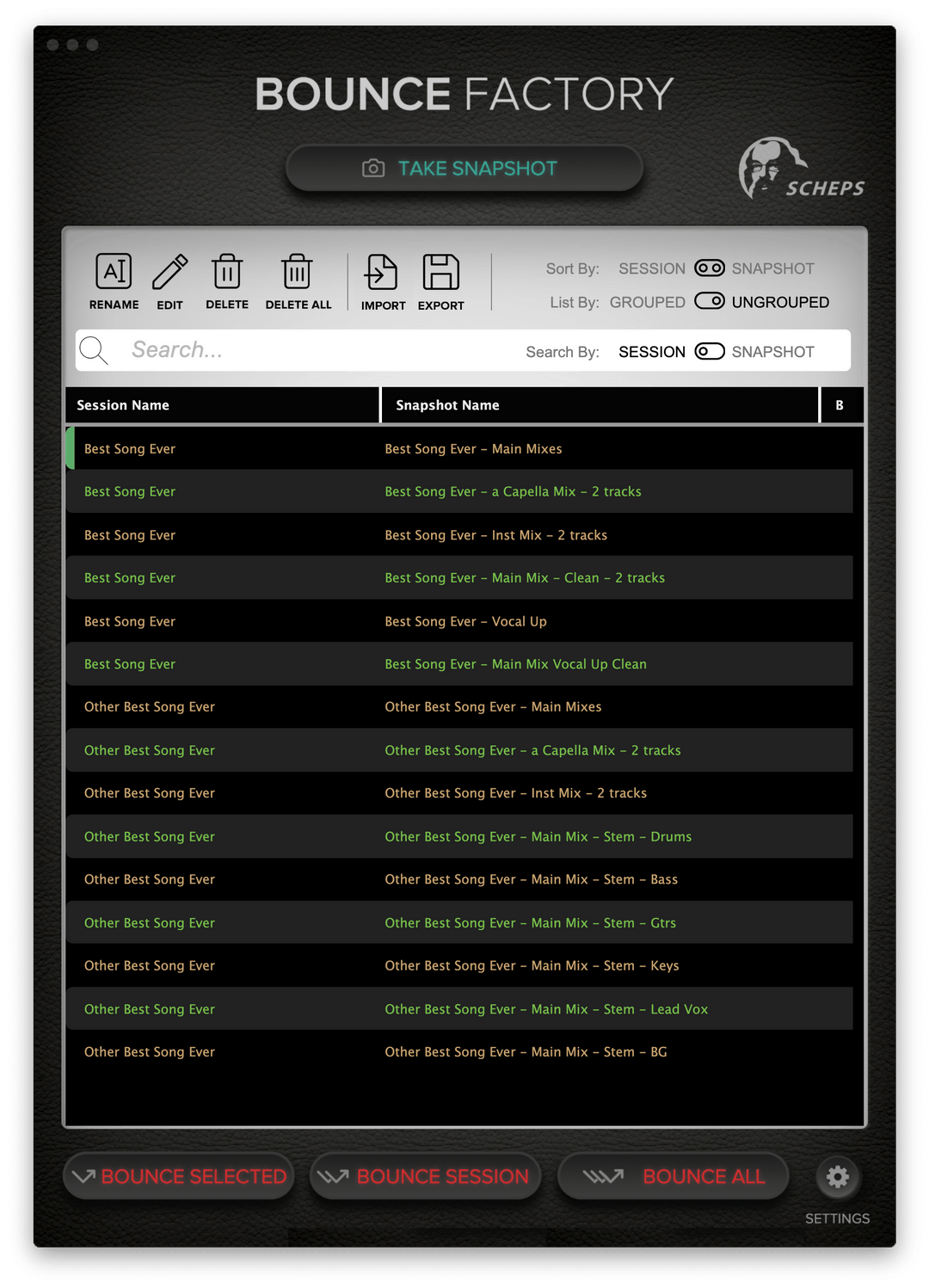
Save time, stay creative!
Let Bounce Factory bounce your mixes so you don't have to!
Check out Andrew Scheps' SoundFlow packages
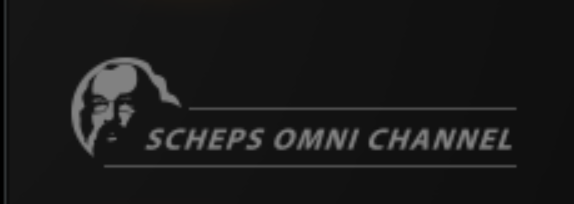





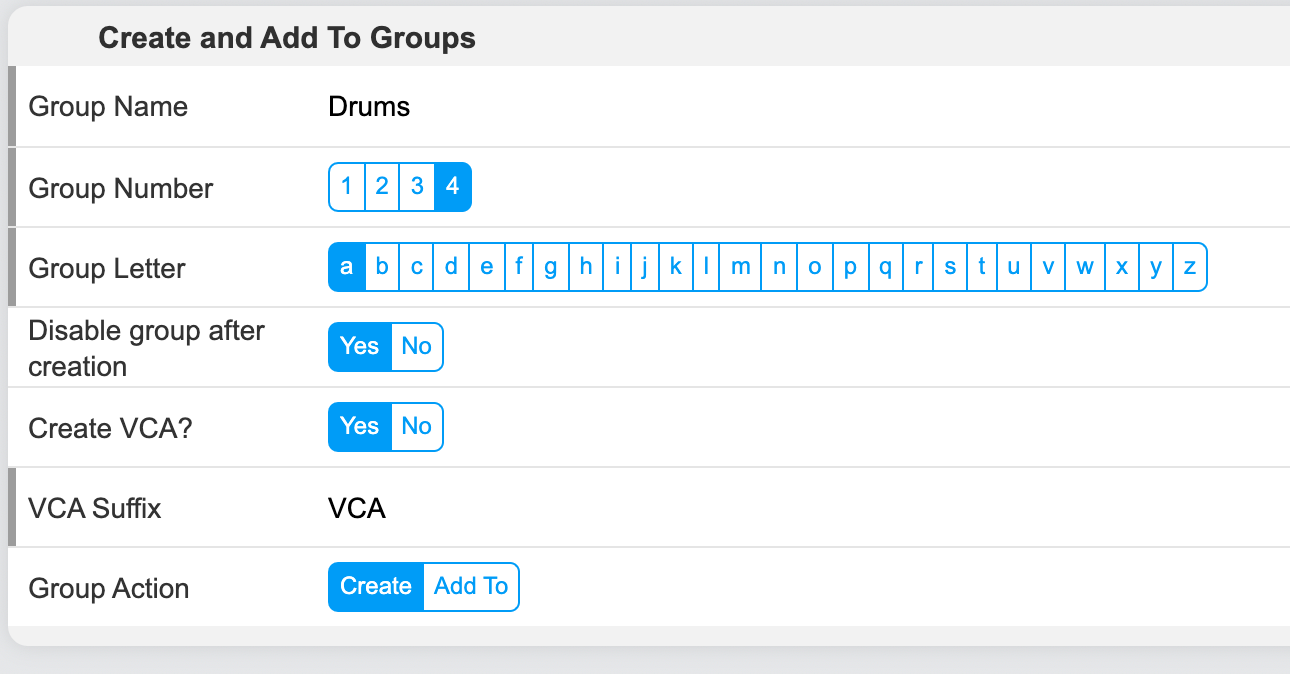
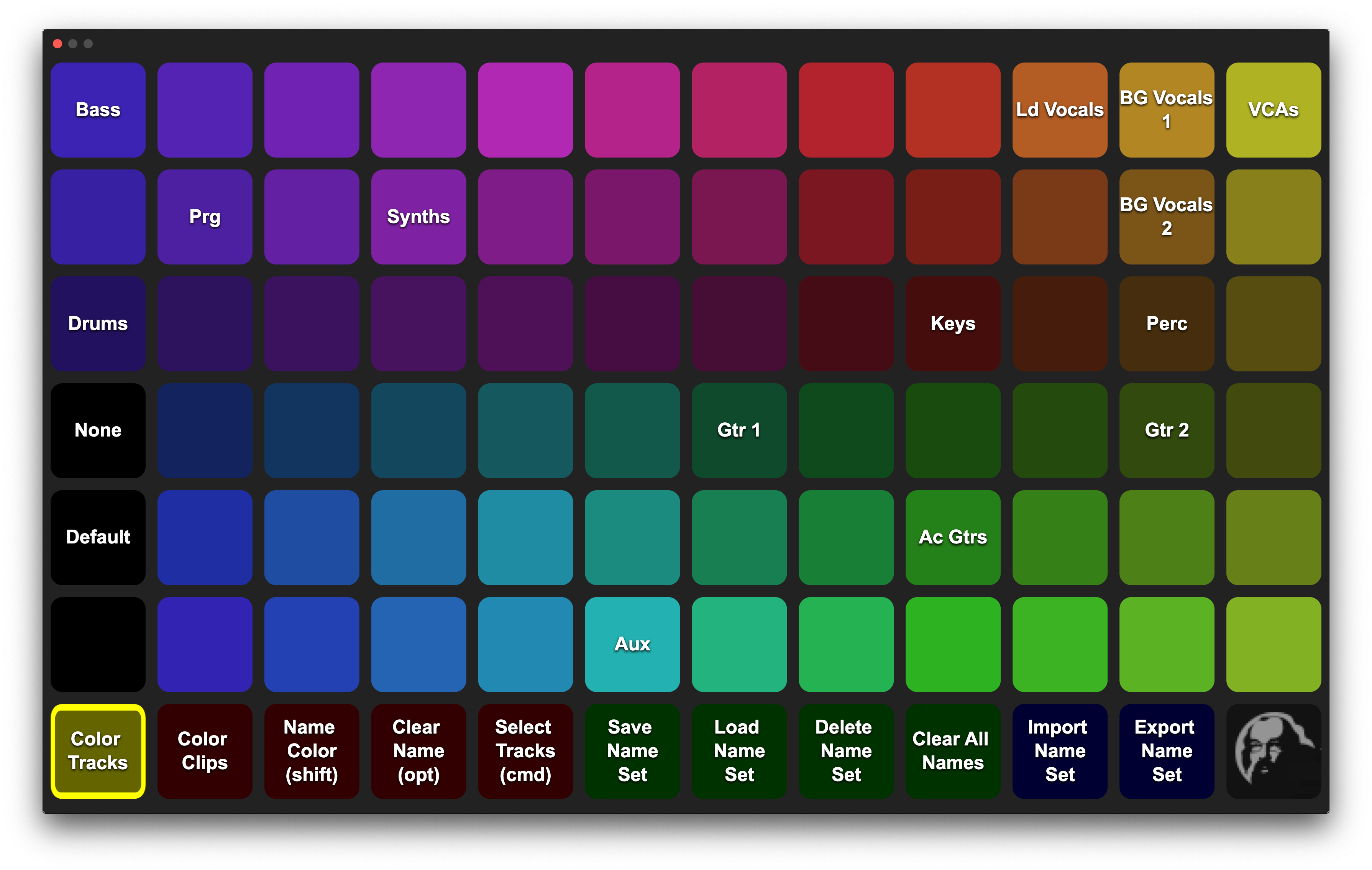
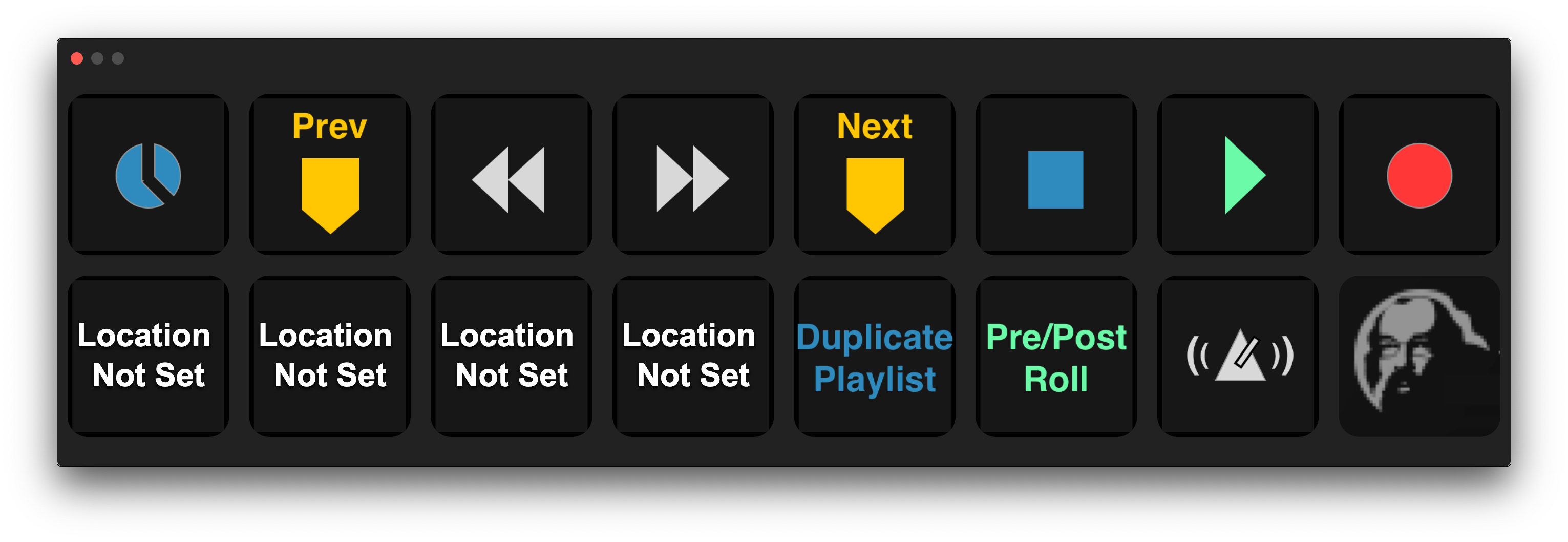

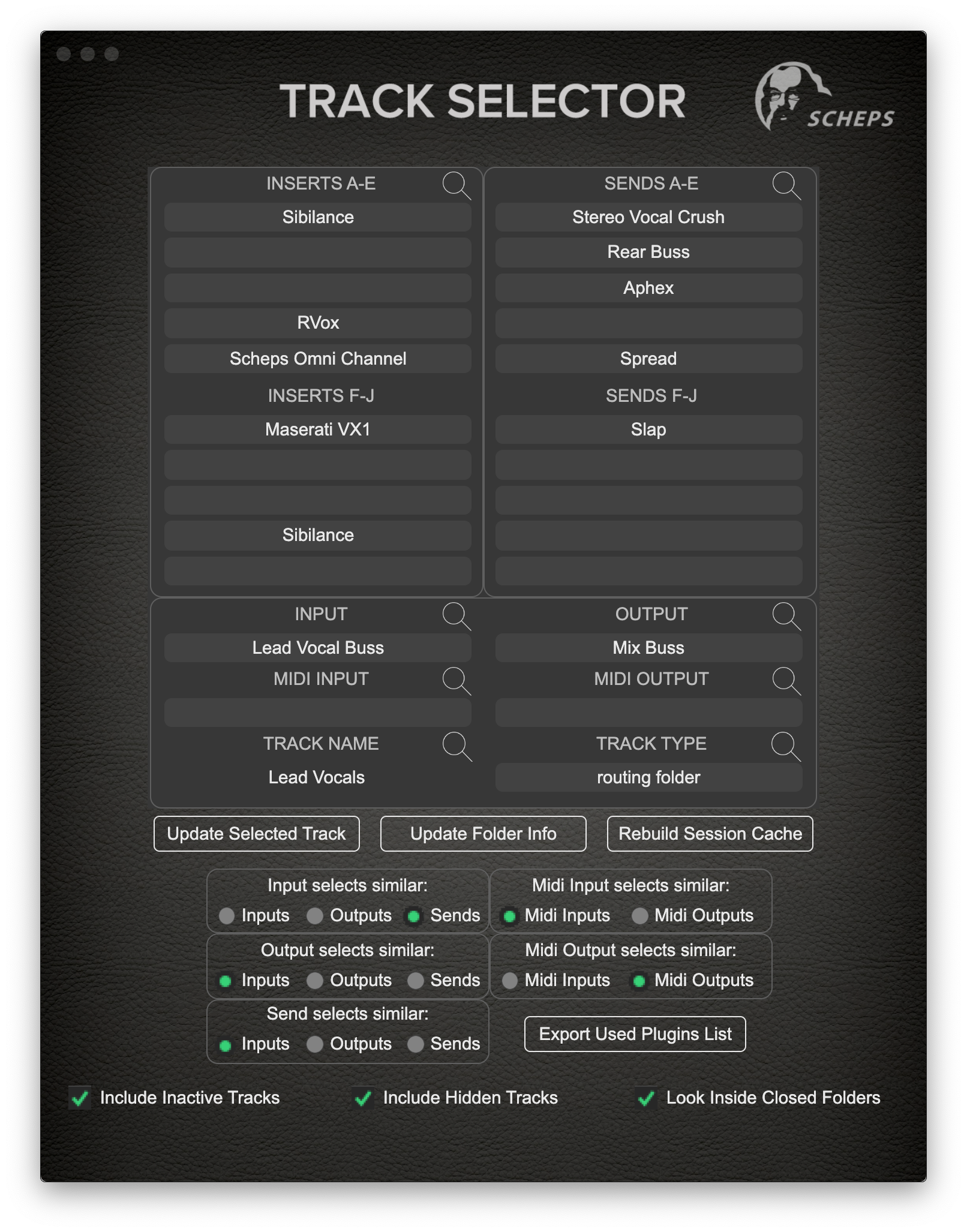

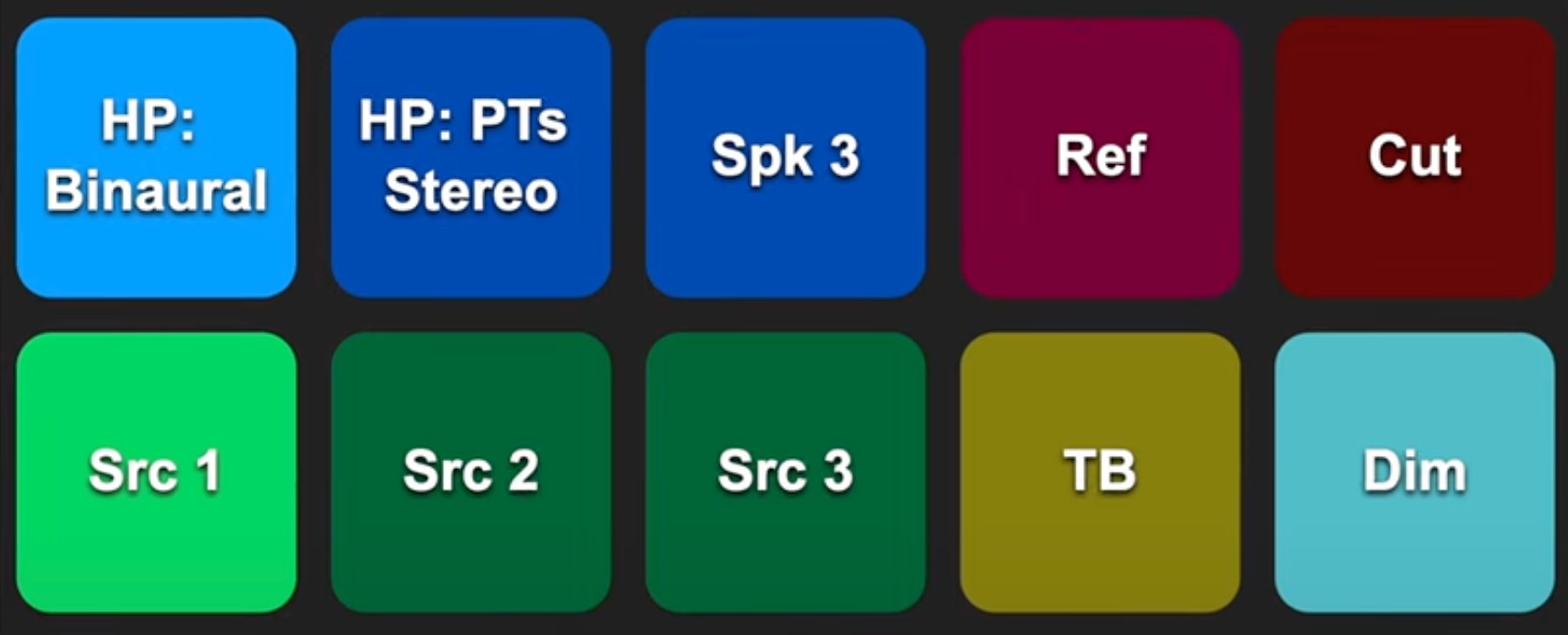


Interview with Andrew Scheps
By Kitch Membery
What got you hooked on SoundFlow?
There were things I've been trying to automate for years in Pro Tools, and nothing could do it until SoundFlow.
Was there a wow moment you had when you first started using SoundFlow?
The very first script I wrote, which was the reason I was trying SoundFlow, was to be able to switch input (input monitor) on a track that wasn't on the screen. And it worked. And it was easy.
Can you give me an example of a time you were working on a project, and SoundFlow enabled you to stay in creative headspace?
Every song I mix, I have to prep. And I used to dread prepping sessions because it's so much repetitive work. All of that is scripted now with SoundFlow, and it's actually kind of fun to just sit there and hit buttons on the Stream Deck. Prepping a session has gone from 45 minutes to about 5.
What's the most exciting thing you've discovered SoundFlow can do for you?
The most exciting thing that SoundFlow can do is that it can do everything. Anytime I come up against anything that I find boring or repetitive, I can script it. And it's not just Pro Tools. You can script just about anything.
Can you tell us about how SoundFlow allows you to try out ideas quickly?
While I'm mixing, there can be things that are complicated in terms of signal routing or plug-in chains and things like that. And I've actually managed to use SoundFlow to very quickly audition large changes in my sessions that would be really hard to do manually.
How did you feel when you created a macro and ran it for the first time?
I laughed out loud when my first macro worked.
What kind of projects are you looking forward to using SoundFlow on in the future?
I use it on absolutely everything. For instance, when I started mixing in Atmos a few years ago I immediately set up a bunch of scripts to help me prep, copy automation and prepare ADMs. I've written a bunch of apps that started life as scripts to do repetitive tasks I came up against. It turns out a lot of people have exactly the same roadblocks while trying to be creative so they find them useful too. I like to think of them as not only automating Pro Tools and other apps, but actually adding to the feature set.
Can you tell us about the camaraderie in the SoundFlow user Forum?
The SoundFlow forum is extraordinary. When I first got SoundFlow and I was trying to make my first more advanced macros (before I'd even gotten into scripting), you start to come up against things that you don't quite understand. I posted some questions in the forum expecting I'd hear from somebody in a week if at all. Within minutes, I had replies both from Christian and from other SoundFlow users walking me through things, pointing me to resources, and it made the learning curve so much shallower than it would have been otherwise.
How could SoundFlow change the future of audio?
I think SoundFlow changes the future by changing the present. It gives you the ability to build features into the software you use all day every day that don't exist. And maybe there are features that only you would ever want. So they'll never be built by somebody else, but you can build them right now. This keeps you from ever avoiding a creative idea because it would be difficult.
How do the apps and scripts you've created keep you in the zone?
Almost everything I've done in SoundFlow is based on me performing a task and while I'm in the middle of it, realizing this would be much better if I never had to do this again, either because it's repetitive or because it's complicated. But as soon as I hit that mindset of, wow, I really hope I never have to do this again, I stop and I script and make SoundFlow do it for me.
How did you find out about SoundFlow?
I found out about it through word of mouth in a Pro Tools forum. When I asked how I might be able to do something there were a bunch of people who piped up and said I needed to go get SoundFlow immediately.
How does SoundFlow save you time?
Every single repetitive task is scripted. All of my session prep is scripted. All of my mix bouncing is scripted. All of the usual things that I do multiple times while mixing, like assigning outputs or moving tracks to a folder, every single one of those tasks is scripted. Sometimes it's scripted in a general way that could be used by anybody, and sometimes it's really specific just to the way I work.
Can you talk about SoundFlow and Pro Tools integration?
Yeah, I've spent years trying to automate Pro Tools to do things with different programs all the way back to the original Quick Keys and pretty much every program that's ever been written since then, and they all rely on basic Pro Tools functionality, whereas SoundFlow has hooks in deep. It can go in and read menu items, it can see the state of different track parameters and things like that, which would be very difficult to automate based on. So it's not just a matter of automating what Pro Tools is doing, but it's reacting to the state that Pro Tools is in, and that's unique.
Was SoundFlow easy to learn?
SoundFlow is really, really deep, but I've got to say between the macros and the forum, it's actually really easy to get started, and then it's just up to you how far into the belly of the beast you want to go. Even if when you're starting with SoundFlow you're finding the macros a little bit confusing and you haven't quite figured that out, there are hundreds and hundreds of scripts for free in the SoundFlow store that will get you started. Any mundane task you can think of has probably already been scripted.
How does SoundFlow help you with session delivery?
Well, um, Bounce Factory. Something where you'd have to set aside a day at the end of a project to print all the mix passes and stems now happens automatically, while I sleep.
What was the reason for creating the Offset Counter?
The Offset Counter app addresses something that has been bothering me in Pro Tools for years, and I think every single person who works in music has had this problem, where you are working on a song that doesn't start at the beginning of the session. Anybody listening to a rough mix or even a final mix is listening to a file that as, far as they're concerned, starts at zero, but as far as you're concerned it starts somewhere else in the session. They send mix notes that say, hey, at 1:23 something happened, and you have to figure out where 1:23 is in the mix. The ability to re-zero the minutes and seconds counter within the Pro Tools session is just a feature that doesn't exist without this. You'd think it's not that big a deal, but it is a big deal when you've got a lot of notes that are all time based. People working in post need to be able to re-zero the time code counter as well. so it turns out it's a much more universal problem than even I thought.
Can you tell us a bit about the Scheps Color Deck, the reason behind building it, and how it enhances the Pro Tools color palette?
It started life just as a kind of toy for me because I was curious if I could get it to work. I color-code everything in Pro Tools, and it's a big part of the way I organize and the way I can work quickly and stay creative. The first thing is that I wanted to get the color palette off the screen and onto an iPad because that way it could always be there. Then I wanted to make it bigger because it's hard to actually get to all of the little buttons with the mouse. Then I realized, hold on a second, I can actually name these colors, and that's when my head sort of exploded. There's actually quite a bit of new uses for colors because there are lots of shades of purple, for instance, that are very similar, but if you name them, they become very different. So the ability to name the colors and then adding an ability to Pro Tools, which doesn't exist without this, of being able to select all the visible tracks based on their track color, that automatically extends the functionality of color coding in ways that can save you tons of time.
Do you have anything more to say about SoundFlow?
SoundFlow just allows me to automate things in Pro Tools that I've never been able to automate before. The way it interacts with Pro Tools allows you to automate things that cannot be done any other way.